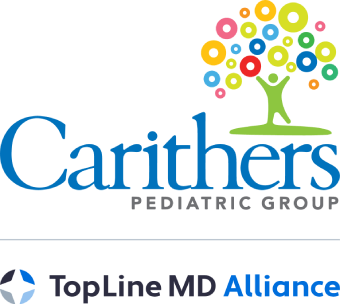From the time their born, children can be unpredictable. Unfortunately, you just never know when illness or injury will strike which is why it’s so important to be as prepared as you can. A well-stocked medicine cabinet is essential for every household whether you have children or not.
Use this helpful list of medicine cabinet must-haves for families to take inventory of what you currently have and fill in what you don’t. Just be sure to check for expiration dates and properly dispose of any medications that are expired.
Oral Medications
- Acetaminophen (Tylenol): This common over-the-counter medication is a first-line defense against fever and pain. Although you’ll find different versions labeled for infants and children, they are now the same concentration. Often the children’s version is less expensive.
- Ibuprofen (Motrin or Advil): This medication also combats fever and pain, but has anti-inflammatory properties to help soothe swelling. It should not be used for children younger than 6 months old.
- Aspirin: While parents may have this on hand for themselves, aspirin should not be given to children under age 12. It has been linked to Reye Syndrome, a rare disorder that affects the brain and liver and can be fatal.
- Diphenhydramine (Benadryl): An antihistamine such as Benadryl can serve multiple purposes from helping children with mild allergic reactions to relieving symptoms of seasonal allergies or some cold symptoms. This medication often has sedative side effects and should never be given to children under the age of 2 without first consulting a pediatrician.
Topical Treatments
- Hydrocortisone (1%): A low-potency topical steroid cream, over-the-counter hydrocortisone cream can help soothe itchy rashes or irritated skin. Hydrocortisone cream can also be used for insect bites and stings.
- Antibiotic ointment: You may recognize these as the brand names Neosporin or Bacitracin, but multi-purpose antibiotic ointments can help reduce the risk of possible infections from minor cuts and scrapes.
- Antifungal cream (1%): One of the less obvious items on our list, antifungal cream can be used for a variety of reasons such as treating yeast diaper rashes, ringworm or athlete’s foot. The most common brand name you’ll likely see on the store shelves is Lomotrin.
- Calamine lotion: is another great item to have on hand to help relieve minor skin irritations such as rashes or insect bites.
- Sunscreen (SPF 15 or higher): While parents may be inclined to go for the higher SPF protection, anything marked higher than 40-50 SPF has been proven to have a minimal additional benefit. The key with sunscreen is to follow application guidelines. The majority of sunscreens should not be used on infants under 6 months old, however, barrier forms that contain ingredients like zinc oxide or titanium dioxide may be safe at any age. You can always consult with your pediatrician for specific recommendations.
- Petroleum jelly such as vaseline can be used to create a barrier such as to protect a cut against infection or to lock in moisture on dry skin or chapped lips.
First-Aid Essentials
- Adhesive tape
- Bandages, in a variety of sizes
- Disinfectant and alcohol wipes, for minor cuts and scrapes
- Gauze pads, in a variety of sizes
- Plastic, non-latex gloves
- Sharp scissors
- Tweezers, for removings splinters or ticks
Miscellaneous Items
- Nasal saline solution: To help relieve stuffy noses associated with seasonal allergies or viruses.
- Thermometer: For children and toddlers, look for a basic digital thermometer that can be used orally. For infants, it can be helpful to have a second thermometer designated for rectal use.
- Nasal Aspirator: To remove mucus from newborns and children who can’t blow their noses.
- Humidifier: Warm-mist and cool-mist humidifiers are equally effective in humidifying the air, but cool-mist versions are always recommended for children. The hot water or steam from a warm-mist humidifier comes with the risk of burn if a child gets too close or in the event of a spill.
- Up-to-date first-aid manual for quick reference
- Cold packs, disposable or reusable
- Insect repellent
- Aftersun care, such as aloe vera
- Cotton balls and swabs
- Dosage spoon or cup
- Allergy eye drops
As a reminder, remember to keep all medications out of the reach of children. Our website features a helpful dosage calculator for fever-reducing medications and allergy medications, but parents should always check with their child’s pediatrician before administering medication. As an added safety measure, parents should also store the phone number for poison control (1-800-222-1222) in their phones and somewhere easily visible in their medicine cabinet or first-aid kit.
Have Questions?
With 12 pediatric board-certified physicians, Carithers Pediatric Group in Jacksonville provides health care services to infants, children, adolescents, and young adults through college years. If you have questions regarding your child’s health or need to schedule an appointment, call 904.387.6200 (Riverside) or 904.997.0023 (Southside).


